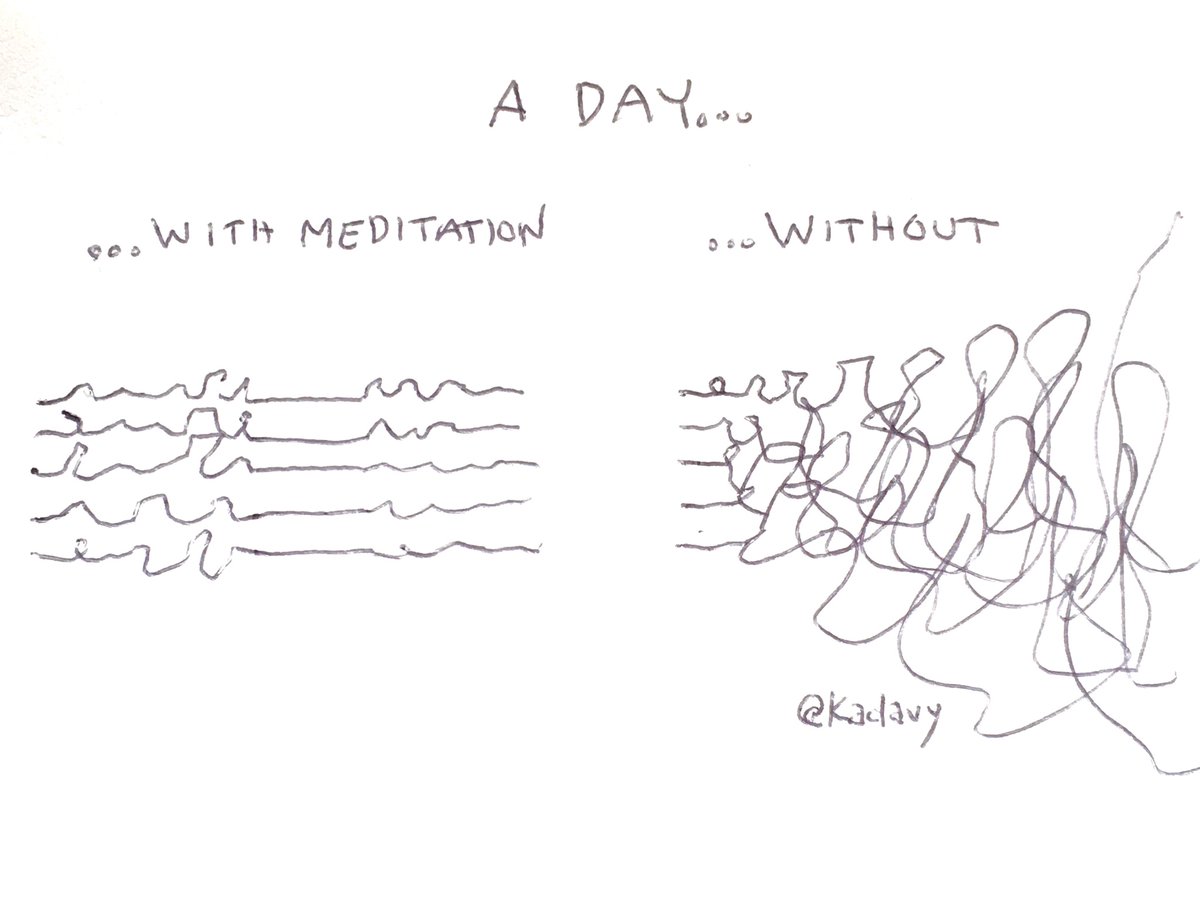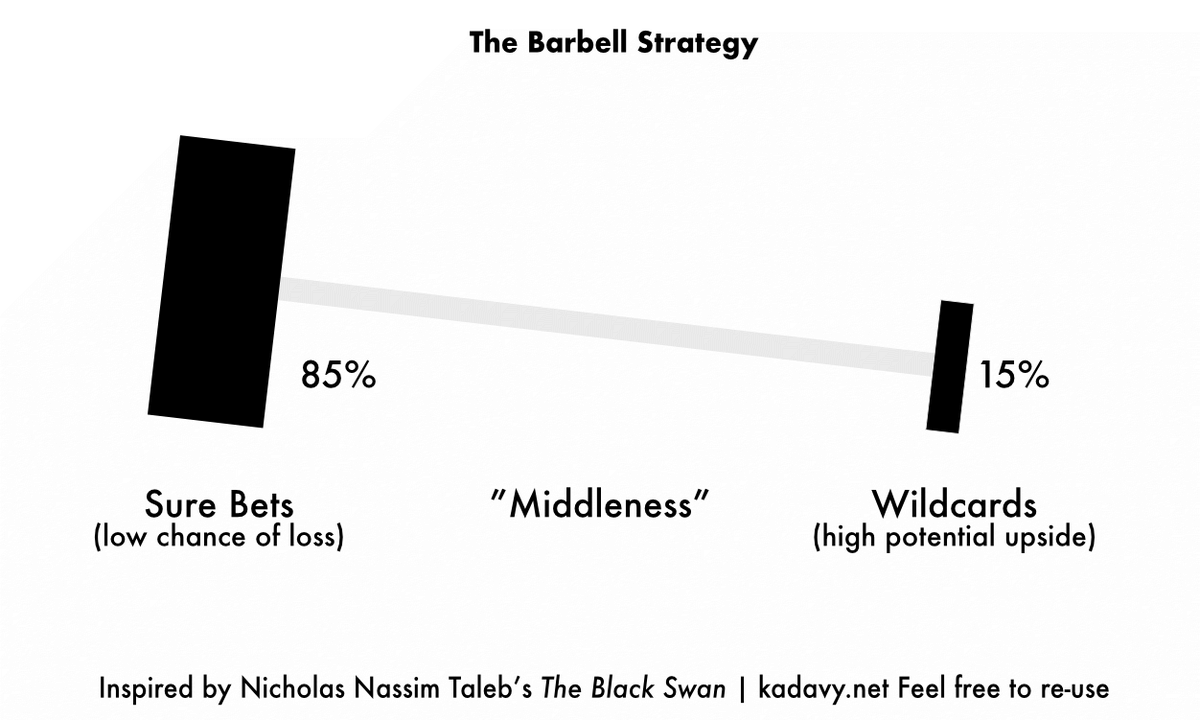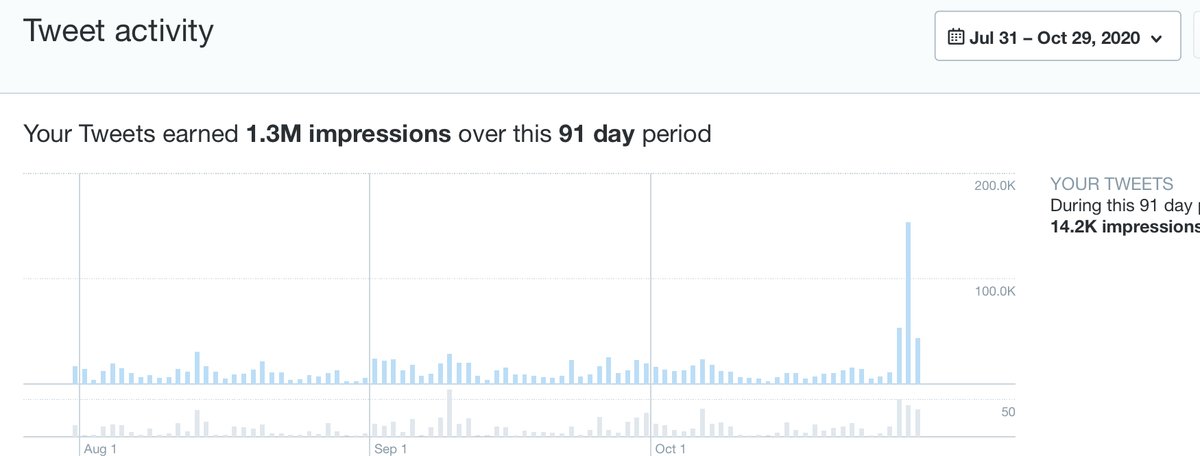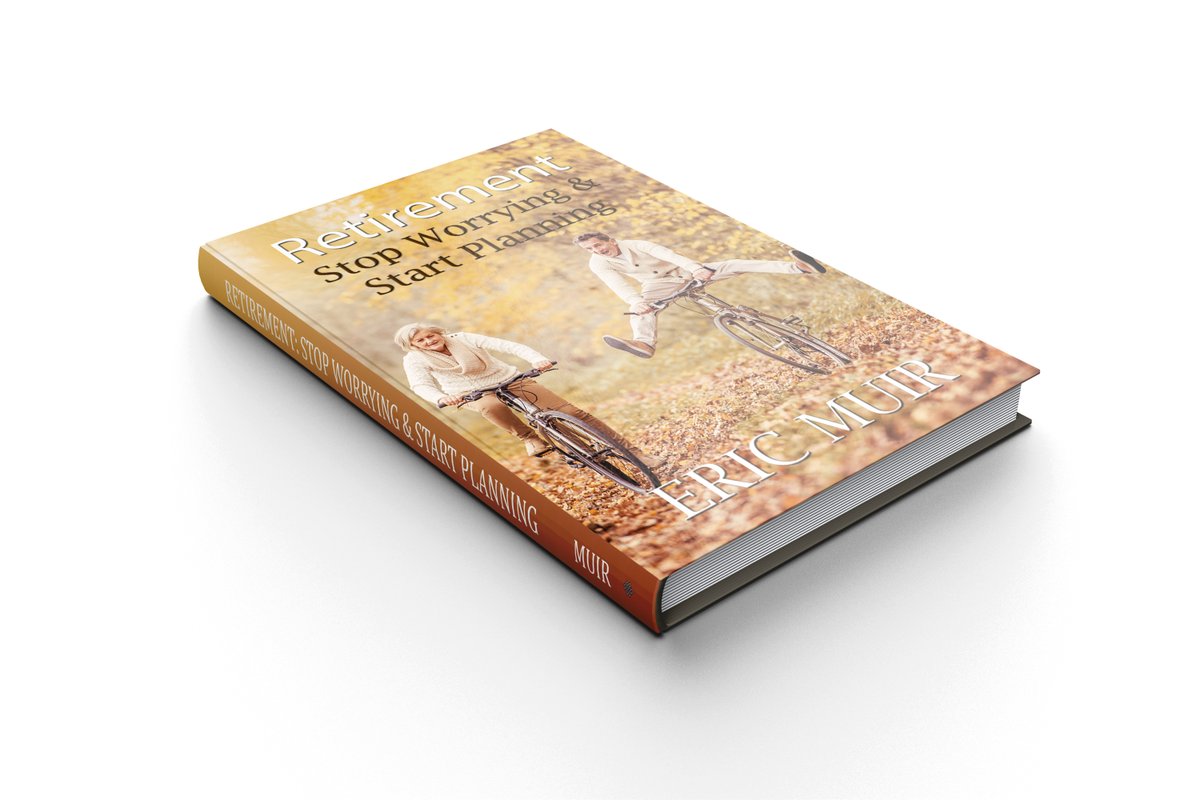
What I learned about productivity meditating 60 hours in 60 days.
(a thread)
(a thread)
I just finished my 60th consecutive day meditating for 60 minutes. (Aka @naval's meditation challenge.)
My 60th day happened to be the final day of a solo retreat in a cabin in the Andean foothills of Colombia.
The view from the location of my 60th session, this morning.
My 60th day happened to be the final day of a solo retreat in a cabin in the Andean foothills of Colombia.
The view from the location of my 60th session, this morning.

The meditation style @naval espouses is best described as "no effort." You're not focusing on your breath, nor any sensations in your body – nor are you reciting a mantra.
You're just sitting up comfortably, letting your thoughts flow.
You're just sitting up comfortably, letting your thoughts flow.
The 60 minutes has to be one session. The real magic happened in the second halves of my sessions.
The first 30 minutes, I had the usual mental chatter and irritability.
The second 30 minutes was when my mind went blank, and a wave of peace washed over my body.
The first 30 minutes, I had the usual mental chatter and irritability.
The second 30 minutes was when my mind went blank, and a wave of peace washed over my body.
The real magic *during* a 60-minute session of meditation happens in the second half of the session, but the rest of the magic happens throughout the rest of the day.
I noticed a profound difference in my disposition and – as a writer – my creative approach...
I noticed a profound difference in my disposition and – as a writer – my creative approach...
The first couple weeks I felt sedated. My mind was numb and blank.
I felt a lack of motivation – not in a bad and guilty way, but in a guilt-free way.
A din of nervous desperation that once drove me disappeared. It was slowly replaced by a new approach.
I felt a lack of motivation – not in a bad and guilty way, but in a guilt-free way.
A din of nervous desperation that once drove me disappeared. It was slowly replaced by a new approach.
Who wants a lack of motivation? This is one reason to choose the right time to do a 60-day challenge.
I just finished a 10-year book project, so the timing was right for me.
And since my book is called Mind Management, Not Time Management, how could I *not* try it?
I just finished a 10-year book project, so the timing was right for me.
And since my book is called Mind Management, Not Time Management, how could I *not* try it?
Meditating 60 minutes a day seems like "throwing away" an hour of your day. But that wasn't the effect I felt.
My days actually seemed *longer*.
I ran out of things to do. Many times I considered doing an extra hour, but wanted to stay consistent.
My days actually seemed *longer*.
I ran out of things to do. Many times I considered doing an extra hour, but wanted to stay consistent.
Having that extra space to consciously think about "whatever" had two effects:
1. It reduced the time I had to "do" things I intended to do.
2. It increased the time I had to think about things I'd do, "if only I had time."
These two effects had secondary effects...
1. It reduced the time I had to "do" things I intended to do.
2. It increased the time I had to think about things I'd do, "if only I had time."
These two effects had secondary effects...
While meditating an hour a day, I didn't have as much time to "do" things I intended to do. So I had to be more efficient with things I did do.
Doing begets more doing – often things that don't need doing. The more you do, the more entropy sets in and you make bad decisions.
Doing begets more doing – often things that don't need doing. The more you do, the more entropy sets in and you make bad decisions.

While meditating an hour a day, I had more time to think of things I'd do "if only I had time." So those ideas took on more power.
I thought more about "crazy ideas." So, what once seemed crazy now seemed doable.
(For example going on a solo retreat to the Andean foothills.)
I thought more about "crazy ideas." So, what once seemed crazy now seemed doable.
(For example going on a solo retreat to the Andean foothills.)
We're bad at consciously using our attention.
Daniel Kahneman and Amos Tversky coined it "the planning fallacy."
For example, the Sydney Opera house took 10 years longer than expected to build, at 15x the expected budget.
Daniel Kahneman and Amos Tversky coined it "the planning fallacy."
For example, the Sydney Opera house took 10 years longer than expected to build, at 15x the expected budget.
We don't know what will work.
As @nntaleb explains in The Black Swan, the market works not because it rewards performance, but because it allows people to get lucky.
Then we backwards-rationalize the "brilliant" work we did.
(My Black Swan book summary)
As @nntaleb explains in The Black Swan, the market works not because it rewards performance, but because it allows people to get lucky.
Then we backwards-rationalize the "brilliant" work we did.
(My Black Swan book summary)
https://mobile.twitter.com/kadavy/status/1326908065048915973
We don't know what will work, but we only have the guts to try what we think will work.
We stay in the mediocre "middle," and ignore our crazy ideas.
(And since everyone else is in the mediocre middle we have more competition.)
We stay in the mediocre "middle," and ignore our crazy ideas.
(And since everyone else is in the mediocre middle we have more competition.)
The antidote to mediocrity is "the Barbell Strategy": Allocate 85% of your resources to "sure bets" (real ones, not "the middle").
The other 15%, invest in your wildcards.
Meditating an hour a day is like surrendering 12.5% of your working day to serendipity.
The other 15%, invest in your wildcards.
Meditating an hour a day is like surrendering 12.5% of your working day to serendipity.

I'm just getting started on this revelation, so it remains to be seen what effect it will have (and narrative fallacy, etc.)
But it's helped here on Twitter. On the day I launched my book, I had this "hit" tweet thread.
(stats in next tweet)
But it's helped here on Twitter. On the day I launched my book, I had this "hit" tweet thread.
(stats in next tweet)
https://mobile.twitter.com/kadavy/status/1321079961130774529
Look at the effect my hit tweet storm had on impressions.
Embarrassingly, I've been on Twitter 14 years, and have never come close to this.
Embarrassingly, I've been on Twitter 14 years, and have never come close to this.

.@naval says there are three types of leverage: labor, capital, and media.
As an independent creator, my leverage is in media. There's no limit to the number of books I could potentially sell.
(Okay, @IAmMarkManson sold 8 million+, so probably not more than that.)
As an independent creator, my leverage is in media. There's no limit to the number of books I could potentially sell.
(Okay, @IAmMarkManson sold 8 million+, so probably not more than that.)
As a writer, being "productive" for me is not about how fast I can type, nor how many words I can produce, but rather the quality of my ideas.
If I'm bad at consciously using my attention, and I can't know what will work, why not surrender an hour a day to mental serendipity?
If I'm bad at consciously using my attention, and I can't know what will work, why not surrender an hour a day to mental serendipity?
This probably applies to you, too. As @KaiFuLee has said, forty- to fifty-percent of jobs will be taken over by AI in the next decade or two.
Whatever you can do, a computer can do it faster. Your edge as a human is not in the doing, it's in the ideas behind the doing.
Whatever you can do, a computer can do it faster. Your edge as a human is not in the doing, it's in the ideas behind the doing.
This is just what I learned about "productivity" meditating 60 hrs/60 days. Other things I noticed:
-Sleep more efficient
-Dreams more intense
-Digestion better
-More patient tolerating things that don't matter, less patient tolerating things that do matter
-Sleep more efficient
-Dreams more intense
-Digestion better
-More patient tolerating things that don't matter, less patient tolerating things that do matter
There you have it! If you can find the right period in your life to try it, I highly recommend meditating 60 minutes for 60 days.
Now that my challenge is over, what will I do tomorrow? Meditate for 60 minutes.
Now that my challenge is over, what will I do tomorrow? Meditate for 60 minutes.
One more thing: Here is a squirrel eating a banana.
• • •
Missing some Tweet in this thread? You can try to
force a refresh





